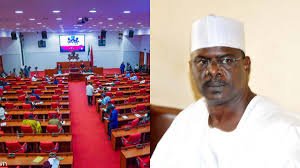In a highly impassioned address, the Chairman of the CDD Election Analysis Centre (CDD-EAC), Prof. Adele Jinadu, has highlighted the key findings of the center’s analysis of the November 11, 2023 off-cycle elections in Bayelsa State, Imo State, and Kogi State. The findings shed light on critical challenges facing Nigeria’s electoral democracy and emphasized the urgent need for political party reform.
The report specified several challenges that affected the integrity and fairness of the elections. The abuse of incumbency by the governing parties in the three states emerged as a significant concern, with unequal access to media platforms and state resources, hindering opposition parties’ ability to convey their messages to the electorate. These practices skewed the playing field and undermined the credibility of the electoral process.
Identity politics also played a notable role, with ethnic, geographical, and gender factors influencing the candidate nomination process. While identity-based mobilization can galvanize political support, it also carries the risk of exacerbating ethnic tensions and violence. The report emphasized the responsible management of identity politics to prevent negative consequences.
Read Also: Vote Buying, Violence Mar Guber Polls in Imo, Bayelsa, Kogi — CDD
Vote inducement, particularly through vote-buying, was another challenge observed during the elections. Instances of monetary incentives, distribution of food items, and alleged bribery compromised the authenticity of voters’ choices and hindered a free and fair electoral process.
The spread of disinformation further complicated the elections, with false news leading to confusion and misinformation among voters. Combating false reports and promoting accurate information is crucial to restore trust in the electoral process.
While there were some challenges faced by the Independent National Electoral Commission (INEC), particularly delays and technical malfunctions, security agencies successfully ensured the overall security and integrity of the elections on the day.
Ultimately, the report’s most significant recommendation highlighted the urgent need for political party reform. The unresolved disputes within and between political parties continue to undermine Nigeria’s democratic institutions and contribute to the abuse of incumbency. Strengthening political parties, promoting transparency, and fostering accountability are essential steps toward a robust and inclusive electoral democracy.
Prof. Adele Jinadu emphasized the critical role of all stakeholders in shaping Nigeria’s electoral system and urged policymakers, political parties, civil society organizations, and citizens to collaborate and implement meaningful reforms. By embracing the recommendations put forth by the CDD-EAC, Nigeria can lay the foundation for fair, transparent, and inclusive elections that uphold the principles of democracy and foster stability and progress.
The report by the CDD-EAC signals a transformative opportunity for Nigeria’s electoral system. It serves as a call to action, igniting the hope of a more resilient and vibrant electoral democracy. With collective commitment and proactive measures, Nigeria can embark on a path towards strengthened democratic institutions and a more engaged citizenry, ensuring a brighter future for the country.






















